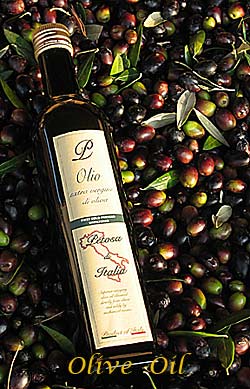Duncan MacDonald
Jakarta 3 May 2009
Reviewed 18 February 2022
Lower your cholesterol 
Check the tables below to see how many foods high in saturated fat you eat regularly.
Saturated fats raise blood cholesterol. To reduce your blood cholesterol level it's important to reduce your intake of foods high in saturated fats, such as fatty meat, full fat dairy products, butter, coconut and palm oil and most deep fried take-aways, commercially baked products such as biscuits and pastries.
Polyunsaturated fats help lower blood cholesterol if your meals are low in saturated fat. Some oils and margarine spreads, nuts, seeds and fish contain polyunsaturated fats. Like all fats, polyunsaturated fats are high in kilojoules, so enjoy them in moderation.
Monounsaturated fats can also help lower blood cholesterol if your meals are low in saturated fat. Some oils and margarine spreads, avocado, nuts and seeds contain monounsaturated fats. Once again, enjoy in moderation [ 1 ]
Statins May Lower Stroke Risk [ 2 ]
Taking statins, which are drugs that lower cholesterol, may make stroke 18% less likely for high-risk patients.
That news, published in May's edition of The Lancet, comes from a review of 24 studies that included nearly 165,800 adults at high risk of stroke.
The patients, who were 63 years old on average, were followed for at least two years and up to seven years. Roughly half were assigned to take statins.
Pooling the data from all of the studies showed that strokes were 18% less likely among patients taking statins than among those who didn't get statins.
For every drop of 39 mg/dL in LDL "bad" cholesterol, stroke risk dropped by 21%, according to the reviewers [ 3 ]
Most strokes are caused by blood clots; those are called ischemic strokes. The other, less common type of stroke, called hemorrhagic stroke, is caused by bleeding.
The new review shows no increase in hemorrhagic stroke risk when the researchers analyzed all of the studies together. But two of the 24 studies suggested a possible increase in hemorrhagic stroke risk in patients taking statins.
The reviewers aren't jumping to conclusions about that possibility; they write that statins "have a good overall safety profile." Still, the reviewers "recommend caution when considering statin therapy in patients with prior cerebral hemorrhage."
In The Lancet, Amarenco discloses his financial ties to the drug company Pfizer, which makes the statin Lipitor. The review focused on statins as a class of drugs, not any particular statin. Blueberries May Banish Belly Fat [ 4 ] Diet Rich in Blueberries May Boost Heart Health
Busting belly fat may be yet another of blueberries' health benefits.
A new study shows rats who ate a diet rich in blueberries lost abdominal fat -- the kind of fat linked to heart disease and diabetes -- as well as experienced other health benefits like lowered cholesterol and improved glucose control even if their diet wasn't otherwise heart-healthy.

"Some measurements were changed by blueberry even if the rats were on a high-fat diet," [ 5 ]
Researchers say the results suggest that antioxidant-rich blueberries may change how the body stores and processes glucose or sugar for energy, thereby reducing the risk of both heart disease and diabetes.
"The benefits of eating fruits and vegetables have been well researched, but our findings in regard to blueberries show the naturally occurring chemicals they contain, such as anthocyanins, show promise in mitigating these health conditions," [ 6 ]
Blueberries Boost Heart Health In the study, presented at Experimental Biology 2009, researchers fed rats bred to become obese either a high-fat or low-fat diet enriched with whole blueberry powder or carbohydrates as 2% of their total diet.
After 90 days, the rats fed blueberries had less abdominal fat, lower cholesterol, and improved glucose control and insulin sensitivity. The latter two factors are markers of how well the body processes sugar for energy and are related to diabetes risk.
These health benefits of blueberries were evident in rats fed both high- and low-fat diets enriched with the blueberry powder. But the benefits were greatest among those who ate a low-fat diet.
In addition to the other heart health benefits of blueberries, those fed the low-fat blueberry diet also lost body weight and fat mass, compared to those on the high-fat diet.
Although more research is needed to confirm these results in humans, a related study presented at the same conference showed that men with risk factors for heart disease who drank wild blueberry juice for three weeks seemed to experience slight improvements in glucose and insulin control. Heart Attack
Statins may help Cancer patients Live Longer
Heart Attack
Statins may help Cancer patients Live Longer

Check the tables below to see how many foods high in saturated fat you eat regularly.
Saturated fats raise blood cholesterol. To reduce your blood cholesterol level it's important to reduce your intake of foods high in saturated fats, such as fatty meat, full fat dairy products, butter, coconut and palm oil and most deep fried take-aways, commercially baked products such as biscuits and pastries.
Polyunsaturated fats help lower blood cholesterol if your meals are low in saturated fat. Some oils and margarine spreads, nuts, seeds and fish contain polyunsaturated fats. Like all fats, polyunsaturated fats are high in kilojoules, so enjoy them in moderation.
Monounsaturated fats can also help lower blood cholesterol if your meals are low in saturated fat. Some oils and margarine spreads, avocado, nuts and seeds contain monounsaturated fats. Once again, enjoy in moderation [ 1 ]
Saturated Fat |
Mononsaturated Fat |
Polyunsaturated Fat |
| Butter, cooking margarine, lard | Canola or Olive Oil based margarine spreads | Polyunsaturated margarine spreads |
| Coconut oil, palm oil, palm kernel oil, (often used in commercial foods) | Olive, Canola and Peanut oils | Sunflower, Safflower and Soybean oils |
| Meat fat, poultry skin | Plain peanuts, cashews and almonds | Plain walnuts, hazelnuts and brazil nuts |
| Dairy fat - cheese, cream, ice-cream, full fat yoghurt and full fat milk | Peanut butter | Fish |
| Commercial biscuits, cakes and pastries | Seeds | Seeds |
| Potato crisps and corn crisps | Avocado | |
| Many take-away foods | ||
That news, published in May's edition of The Lancet, comes from a review of 24 studies that included nearly 165,800 adults at high risk of stroke.

The patients, who were 63 years old on average, were followed for at least two years and up to seven years. Roughly half were assigned to take statins.
Pooling the data from all of the studies showed that strokes were 18% less likely among patients taking statins than among those who didn't get statins.
For every drop of 39 mg/dL in LDL "bad" cholesterol, stroke risk dropped by 21%, according to the reviewers [ 3 ]
Most strokes are caused by blood clots; those are called ischemic strokes. The other, less common type of stroke, called hemorrhagic stroke, is caused by bleeding.
The new review shows no increase in hemorrhagic stroke risk when the researchers analyzed all of the studies together. But two of the 24 studies suggested a possible increase in hemorrhagic stroke risk in patients taking statins.
The reviewers aren't jumping to conclusions about that possibility; they write that statins "have a good overall safety profile." Still, the reviewers "recommend caution when considering statin therapy in patients with prior cerebral hemorrhage."
In The Lancet, Amarenco discloses his financial ties to the drug company Pfizer, which makes the statin Lipitor. The review focused on statins as a class of drugs, not any particular statin. Blueberries May Banish Belly Fat [ 4 ] Diet Rich in Blueberries May Boost Heart Health
Busting belly fat may be yet another of blueberries' health benefits.
A new study shows rats who ate a diet rich in blueberries lost abdominal fat -- the kind of fat linked to heart disease and diabetes -- as well as experienced other health benefits like lowered cholesterol and improved glucose control even if their diet wasn't otherwise heart-healthy.

"Some measurements were changed by blueberry even if the rats were on a high-fat diet," [ 5 ]
Researchers say the results suggest that antioxidant-rich blueberries may change how the body stores and processes glucose or sugar for energy, thereby reducing the risk of both heart disease and diabetes.
"The benefits of eating fruits and vegetables have been well researched, but our findings in regard to blueberries show the naturally occurring chemicals they contain, such as anthocyanins, show promise in mitigating these health conditions," [ 6 ]
Blueberries Boost Heart Health In the study, presented at Experimental Biology 2009, researchers fed rats bred to become obese either a high-fat or low-fat diet enriched with whole blueberry powder or carbohydrates as 2% of their total diet.
After 90 days, the rats fed blueberries had less abdominal fat, lower cholesterol, and improved glucose control and insulin sensitivity. The latter two factors are markers of how well the body processes sugar for energy and are related to diabetes risk.
These health benefits of blueberries were evident in rats fed both high- and low-fat diets enriched with the blueberry powder. But the benefits were greatest among those who ate a low-fat diet.
In addition to the other heart health benefits of blueberries, those fed the low-fat blueberry diet also lost body weight and fat mass, compared to those on the high-fat diet.
Although more research is needed to confirm these results in humans, a related study presented at the same conference showed that men with risk factors for heart disease who drank wild blueberry juice for three weeks seemed to experience slight improvements in glucose and insulin control.





